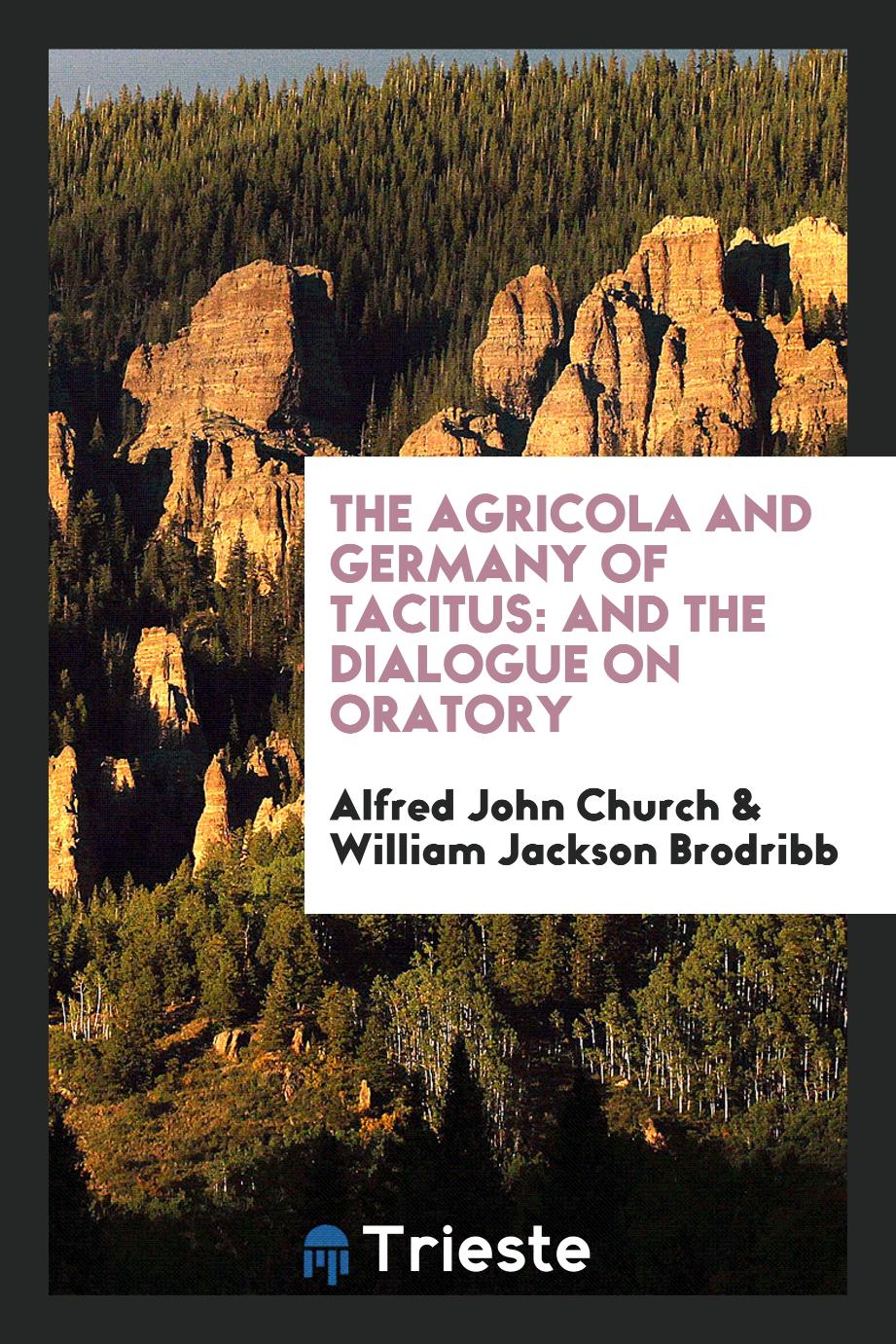
Paperback: 238
Publisher: Trieste Publishing
Language: English
ISBN: 9780649040469
Product Dimensions: 6.14 x 9.21 inches
Publisher: Trieste Publishing
Language: English
ISBN: 9780649040469
Product Dimensions: 6.14 x 9.21 inches
The Agricola and Germany of Tacitus: And the Dialogue on Oratory
Alfred John Church
William Jackson Brodribb
View preview
Quantity
Book description
This work which was published in 1877 is a translation on works of Publius Cornelius Tacitus into English by Alfred John Church in partnership with William Jackson Brodribb.
The favorable reception that was given to their translation of Tacitus' History, prompted the translators to take up the work that they presented to the readers in this volume.
The translators continued to strive to make their version of the translation so that it could satisfy scholars who demand an accurate translation of the original and English readers, offended by the baldness and frigidity that usually disfigure translations.
Their task was extraordinarily difficult because of the style of Tacitus, which even goes beyond its usual harshness and incomprehensibility, and because of the often distorted state of the text, sometimes offering different meanings, equally unacceptable and sometimes completely absent.
Three translations of Tacitus works are presented here, such as The Life of Agricola, Germania and Dialogue on Oratory.
Life of Agricola Life of Agricola – is the work of the ancient Roman historian Publius Cornelius Tacitus, in which he described the biography of his father-in-law Gnaeus Julius Agricola.
In addition to biographical material itself, Tacitus used ethnographic and geographical digressions, making Agricola an important source on the history of the British Isles in the first century of Roman rule.
Germania is an ethnographic description of the Germanic tribes who lived outside the Roman Empire at that time, compiled by Tacitus at the end of the 1st century AD.
Just as Tacitus described the character and customs of the Britons in Agricola, in Germany he retells the tribal composition, beliefs and customs of the Germans, insightfully seeing them as the main threat to the hegemony of Rome.
The emphasis is on their simple virtues and primitive vices, which are akin to the vices and virtues of the most ancient quirits of the republican era.
Tacitus partly idealizes the enemies of his power, opposing their poor and wild life to the corruption of imperial Rome, drowning in luxury.
Dialogue on Oratory - this is a short work in dialogue form on the art of rhetoric.
This work is based on a story about a conversation between several well-known orators in Rome about their craft and its modest place in public life.
Essays like Dialogue, which touched upon the question of the reasons for the decline in eloquence, were widespread in the 1st century AD, but Tacitus's position on this topic is completely different.
The historicity of the protagonists is questionable - it is sometimes assumed that at least Marcus Aper and Curiatius Maternus are fictional characters.
Customer Reviews
Review by Guest
Posted on 21.09.2020
Review by Prisha Drew
Posted on 31.07.2020
Thank you. You’re so helpful.
Review by Guest
Posted on 04.10.2019
Review by Guest
Posted on 17.12.2018
Review by Guest
Posted on 09.11.2018
Review by Guest
Posted on 21.02.2018
Write Your Own Review
You're reviewing: The Agricola and Germany of Tacitus: And the Dialogue on Oratory